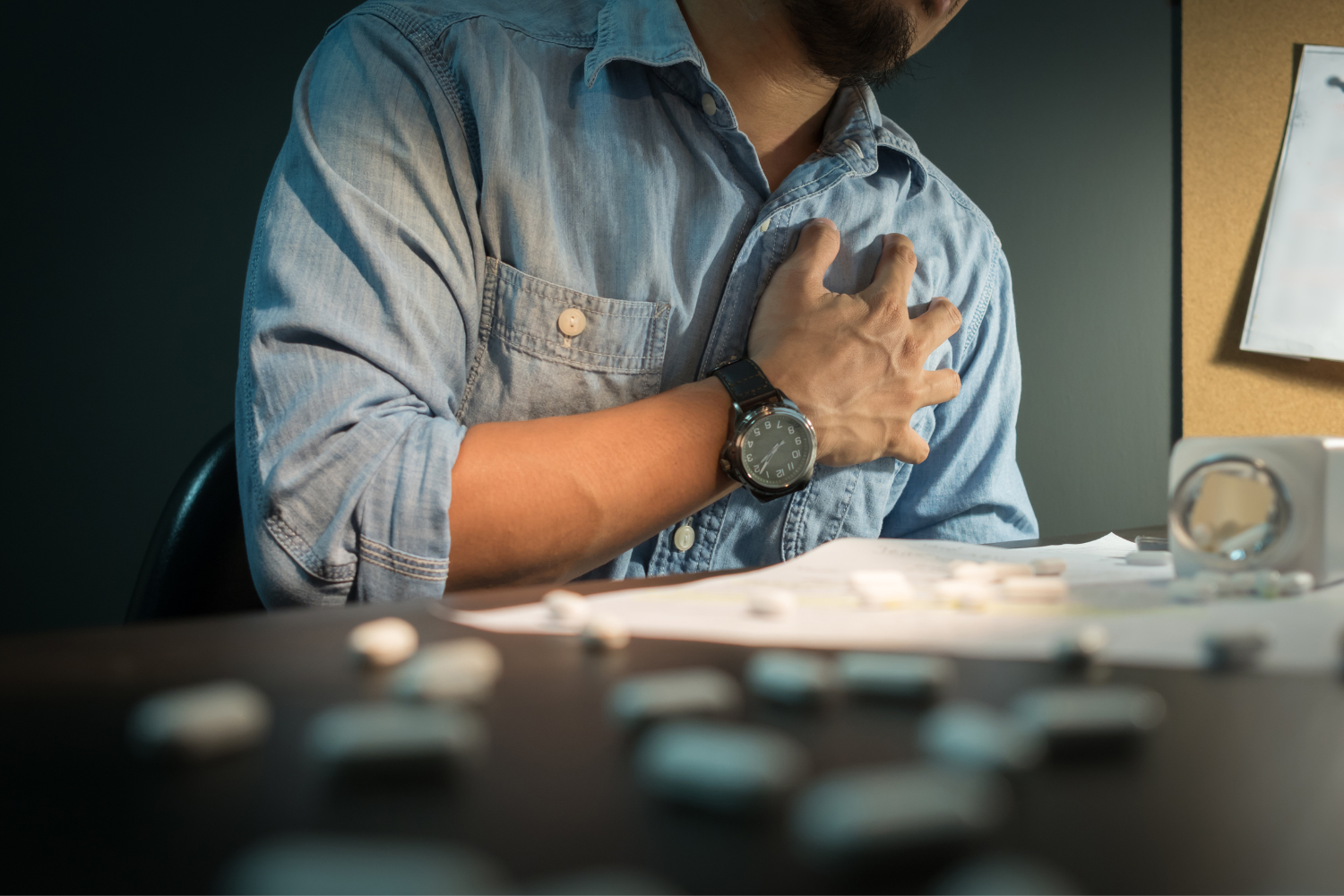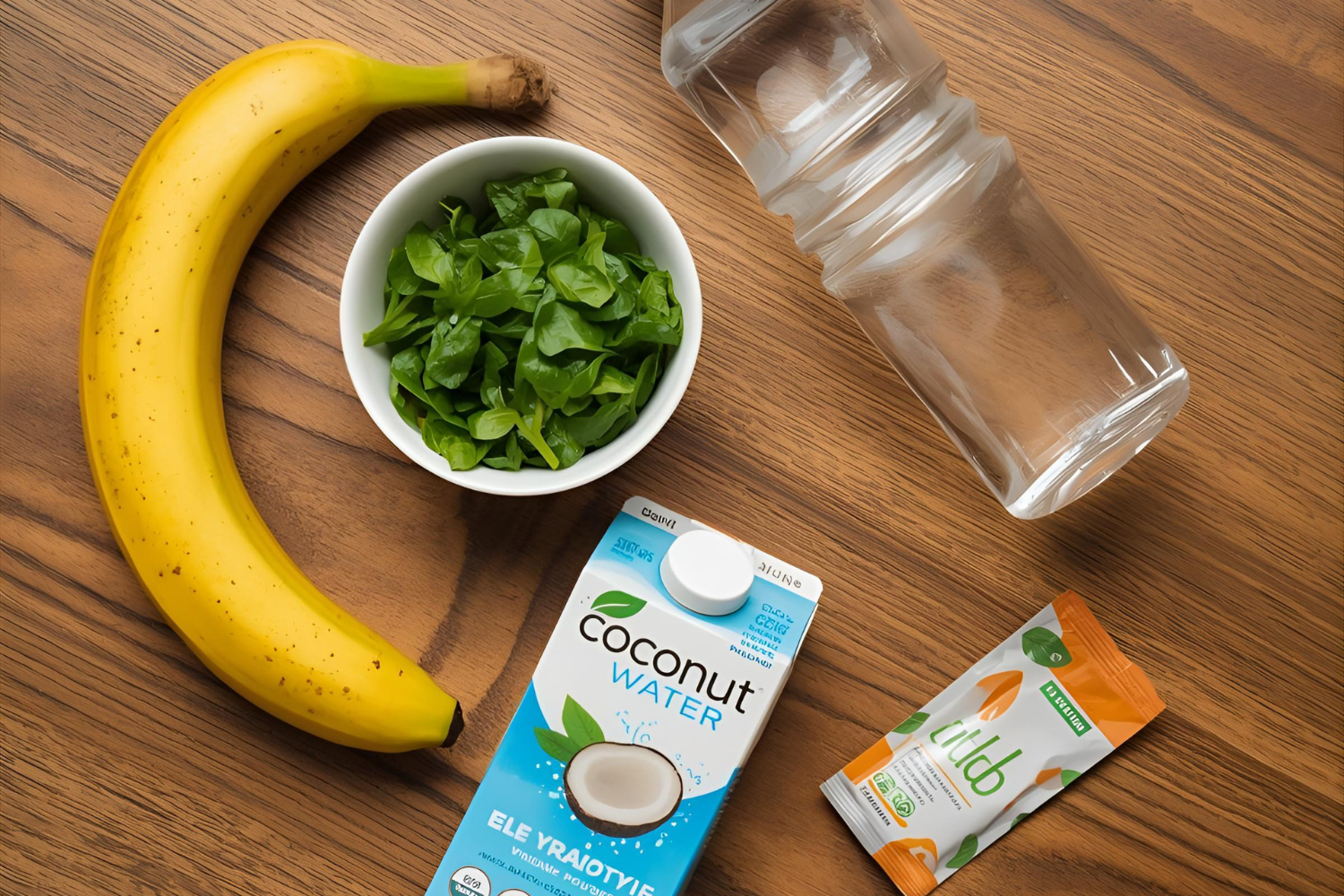Electrolyte powders and drinks are everywhere, but can you have too much of a good thing? Electrolytes like sodium, potassium, magnesium, and calcium are essential minerals that carry an electric charge and help support hydration, muscle function, and energy levels.
They’re commonly added to sports drinks, electrolyte beverages, and electrolyte supplements to help replace what the body loses through sweat. But just like not getting enough, consuming too many electrolytes can also cause problems. This article breaks down the signs of excess intake, health risks linked to an overdose on electrolytes, and simple tips to help maintain electrolyte balance safely.
What Are Electrolytes and Why Do They Matter?
Electrolytes are essential minerals, including sodium, potassium, magnesium, and calcium, that help your body stay hydrated, support muscle contraction, and keep your nerves working properly. They also play a key role in energy metabolism and help cells communicate with each other.
Your body naturally balances electrolyte levels through the foods you eat, the fluids you drink, and the way your kidneys regulate excess minerals. While drinking electrolyte beverages or using electrolyte supplements can help in certain situations, balance is more important than simply adding more. Too many electrolytes can disrupt the body’s natural balance, which may result in symptoms such as muscle cramps or fatigue.

Can You Overdose on Electrolytes?
Electrolytes are necessary for your health, but too much can lead to an imbalance. It’s important to understand how excess intake affects the body and how to avoid it.
What happens if you consume too many electrolytes?
When you take in more electrolytes than your body needs, it can cause an electrolyte imbalance. This may include high sodium levels (hypernatremia), too much potassium (hyperkalemia), or excess calcium or magnesium.
These imbalances can affect how your muscles work, how your heart beats, and how your kidneys handle fluid. In rare cases, severe electrolyte imbalance may affect muscle and nerve function, including those involved in breathing or heart rhythm, and may require medical attention.
How much is considered “too much”?
Most adults can meet their electrolyte needs through food and water. Athletes or people with intense physical activity may benefit from added electrolyte intake through electrolyte drinks or electrolyte powders.
However, taking multiple electrolyte products or not checking the sodium levels on labels can lead to problems. Since needs vary depending on your health, medications, and activity level, it’s best to read product labels and talk to a healthcare provider before increasing your electrolyte intake.

Symptoms of Too Many Electrolytes
Having too many electrolytes can cause noticeable symptoms. Some are mild and go away with changes in intake, while others may need medical attention.
Early warning signs
Mild symptoms of electrolyte imbalance can show up quickly after drinking too many electrolyte beverages or using multiple electrolyte packets.
-
Nausea
-
Muscle cramps
-
Weakness
-
Headache
-
Fatigue
More severe symptoms
In extreme cases, excess electrolytes can impact how your body functions, especially your heart and nervous system.
-
Confusion
-
Irregular heartbeat sensations
-
Tremors
Situations where symptoms are more likely
Some people have a higher risk of getting too many electrolytes, especially in certain situations.
-
After intense workouts with heavy use of electrolyte supplements
-
When combining electrolyte powders with high-sodium sports drinks
-
In older adults or those with kidney disease, heart failure, or other health conditions
-
When taking blood pressure medications or other drugs that affect sodium and potassium balance

Risks of Overdoing Electrolytes
Getting enough electrolytes is important, but having too many can come with side effects. Both short-term and long-term issues can show up when your electrolyte intake is too high.
Short-term risks
In the short term, consuming too many electrolytes, especially sodium, can actually pull water out of your cells instead of hydrating them. In some cases, taking high-sodium electrolyte supplements without enough water may lead to a temporary imbalance that doesn't support hydration effectively.
You may also experience digestive discomfort if you use too many electrolyte packets or powders at once. Some people report bloating, stomach cramps, or even diarrhea after taking large doses of electrolyte supplements.
Long-term considerations
Chronic overconsumption of high-sodium or high-potassium supplements may be inappropriate for individuals with kidney conditions and should be discussed with a healthcare provider. This is especially true if you mix multiple electrolyte drinks or powders daily without checking how much sodium or potassium you’re actually getting. People with kidney disease or other health conditions may be at higher risk of complications from this kind of excess intake.
Safety Tips for Maintaining Electrolyte Balance
To avoid electrolyte imbalance, it helps to know when supplements are useful and how to use them the right way. These tips can support hydration and overall health.
When you actually need extra electrolytes
Extra electrolytes can be helpful after heavy sweating, intense physical activity, or time spent in hot weather. They're also useful after vomiting or diarrhea, when the body loses electrolytes quickly. In these situations, using an electrolyte powder or drink can help replenish essential electrolytes like sodium and potassium.
Everyday hydration practices
For most adults, water is enough for staying hydrated during normal daily routines. Electrolyte-infused waters or electrolyte drinks can support hydration during exercise or illness, but plain water should still be your go-to for regular hydration needs.
Foods that naturally support electrolyte balance
You can also maintain electrolyte balance through food. Bananas provide potassium, spinach contains magnesium, and yogurt is a source of calcium. Coconut water is a natural source of multiple electrolytes and can be a good alternative to sugary sports drinks or artificial electrolyte beverages.
Smart use of electrolyte supplements
Electrolyte supplements may help support fluid balance during intense activity or heat exposure. Look for electrolyte packets or powders with balanced amounts of sodium, magnesium, and potassium. Always read the label to check the serving size and added sugar content. If you're taking blood pressure medications or have certain health conditions, talk to your healthcare provider before adding supplements.

What To Do If You’ve Had Too Many Electrolytes
If you think you've taken in too many electrolytes, take steps to restore balance and prevent further symptoms.
-
Drink plain water to help flush out excess electrolytes.
-
Rest and avoid taking more electrolyte supplements or sports drinks.
-
If you experience concerning symptoms such as confusion or an irregular heartbeat after supplement use, it’s important to consult a healthcare provider.
How to Stay Safe While Staying Hydrated
Electrolytes help keep your body hydrated and support energy, but too many can lead to problems. Staying in balance is what keeps you feeling your best. Overdoing electrolyte intake can cause mild symptoms like cramping or more serious issues like heart rhythm changes. LyteLine’s LytePow is designed to help maintain electrolyte balance without the guesswork, giving your body the support it needs — no more, no less.
Frequently Asked Questions
What are the symptoms of an electrolyte overdose?
Symptoms may include nausea, weakness, muscle cramps, confusion, or irregular heartbeat.
Can you overdose on electrolyte powders like Liquid I.V.?
Yes, using too many electrolyte powders in one day can lead to electrolyte imbalance or excess sodium intake.
Is it bad to drink electrolyte water every day?
For most people, daily use is safe in moderation, but it depends on your activity level, diet, and health conditions.
How much is too much electrolyte intake in one day?
There’s no single limit, but exceeding daily sodium or potassium needs through supplements can be risky, especially with certain medications.
What’s the difference between dehydration and electrolyte imbalance?
Dehydration is low body fluid, while electrolyte imbalance is a problem with mineral levels like sodium or potassium, though the two often occur together.
References
-
Adrogué, H. J., & Madias, N. E. (2000). Hypernatremia. The New England journal of medicine, 342(20), 1493–1499. https://doi.org/10.1056/NEJM200005183422006
-
American College of Sports Medicine, Sawka, M. N., Burke, L. M., Eichner, E. R., Maughan, R. J., Montain, S. J., & Stachenfeld, N. S. (2007). American College of Sports Medicine position stand. Exercise and fluid replacement. Medicine and science in sports and exercise, 39(2), 377–390. https://doi.org/10.1249/mss.0b013e31802ca597
-
Gennari F. J. (2002). Disorders of potassium homeostasis. Hypokalemia and hyperkalemia. Critical care clinics, 18(2), 273–vi. https://doi.org/10.1016/s0749-0704(01)00009-4
-
Palmer, B. F., & Clegg, D. J. (2015). Electrolyte and Acid-Base Disturbances in Patients with Diabetes Mellitus. The New England journal of medicine, 373(6), 548–559. https://doi.org/10.1056/NEJMra1503102
-
Sterns R. H. (2015). Disorders of plasma sodium--causes, consequences, and correction. The New England journal of medicine, 372(1), 55–65. https://doi.org/10.1056/NEJMra1404489
-
Yu-Yahiro J. A. (1994). Electrolytes and their relationship to normal and abnormal muscle function. Orthopedic nursing, 13(5), 38–40. https://doi.org/10.1097/00006416-199409000-00008



